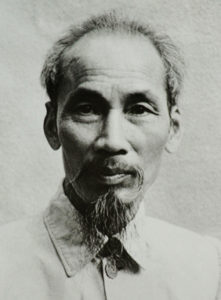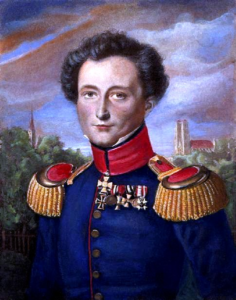Like other silly ideologies, libertarianism excels at creating slogans. Like libertarianism itself, slogans have the strength of an inflated balloon: there is an appearance of something solid but once the pin of logic is applied, what emerges is a lack of content.
One of the most common slogans of right-wing libertarians is the phrase “Taxation is theft.”
The phrase conveniently ignores the fact that in modern times what is allegedly being “stolen” isn’t private property to begin with. Neither is what is being allegedly “stolen” even real. More about that in a moment.
The phrase confirms the basic ignorance behind the purpose of taxation which isn’t to raise revenue. For that to happen, the government would have to charge the taxpayer interest on the money it created. What is the point of producing something for profit and loaning it out without charging a fee? If the government was engaged in that practice, we wouldn’t be talking about government taxation. We’d be talking about usury, an activity performed by every private commercial lending bank on the planet.
The purpose of taxation is to regulate aggregate demand. Since most people, (and we should assume most libertarians) are unfamiliar with the phrase let me put it another way.
When a government requests that each citizen provide a certain amount of a good or item each year, the effect is to create demand for that item. That item need not be money (which isn’t real to begin with). The item could be bananas, rubber, tin or diapers. If you think I’m mistaken consider the hut tax employed by the British in their African Colonies during the 19th century.
More importantly in modern times where tax is paid in currency (cash) the money that is being requested by the national treasury originated in the treasury in the first place. As the businessman and academic Warren Mosler succinctly puts it, “…the funds to pay taxes, from inception, come from government spending.”
Since the government issues the currency and requests that taxes be paid in that currency, the government has created a demand for that currency.
But why create the demand?
Because when there is a demand for an item, value for that item is created. In the case of money, demand for money creates a symbolic value for that currency. Taxation therefore is an intervention in the market-place for the public good.
And I say symbolic because as previously mentioned money is not real. It is a conscious agreement on measuring an abstract value. It can take many forms however the underlying value of money is determined by the abstract notion of trust. Here the history of Ireland provides a useful example.
In 1970 during a six month banker’s strike in Ireland where cash was in short supply, the Irish resolved the short term problem of cash-flow by creating their own currency. As journalist and historian Rutger Bregman notes the Irish:
… started issuing their own cash. After the bank closures, they continued writing checks to one another as usual, the only difference being that they could no longer be cashed at the bank. Instead, that other dealer in liquid assets – the Irish pub – stepped in to fill the void. At a time when the Irish still stopped for a pint at their local pub at least three times a week, everyone – and especially the bartender – had a pretty good idea who could be trusted. “The managers of these retail outlets and public houses had a high degree of information about their customers,” explains the economist Antoin Murphy. “One does not after all serve drink to someone for years without discovering something of his liquid resources.
In no time, people forged a radically decentralized monetary system with the country’s 11,000 pubs as its key nodes and basic trust as its underlying mechanism. By the time the banks finally reopened in November, the Irish had printed an incredible £5 billion in homemade currency. Some checks had been issued by companies, others were scribbled on the backs of cigar boxes, or even on toilet paper. According to historians, the reason the Irish were able to manage so well without banks was all down to social cohesion.
In essence what the Irish public did in 1970 is the same thing that governments do on a daily basis with banks: governments issue bonds which commercial banks lend to the public at interest, thus expanding the money supply. Taxation ensures a minimal level of demand for the currency, thus adding symbolic value to what is otherwise worthless paper. As a medium of exchange, money has value. However as the Irish demonstrated, it holds an abstract value.
Since money is neither a private good nor real, the argument that taxation is theft is nonsense. It is symptomatic of the poor health of a society when it starts believe that money is a concrete good. The result is cash hoarding and rent-seeking behaviours which undermine the practical value of money as a vehicle for meaningful investment in areas of the economy that promote growth. As economist and finance expert Rana Foroohar points out:
…only around 15% of the money flowing from financial institutions actually makes its way into business investment. The rest gets moved around a closed financial loop, via the buying and selling of existing assets, like real estate, stocks, and bonds.
In essence, most financial exchanges in the money markets are concerned with spinning paper to no practical use in the wider economy.
Like other narrow-minded ideologues, libertarians are either consciously or unconsciously blind to the greater injustice that occurs in the money markets: the volatilization of money.
 For those unfamiliar with the term this occurs when a bank takes its customers (those who deposit money in their bank accounts) funds and uses them to invest in abstract assets like stocks bonds and real estate, while simultaneously avoiding investing those deposits (through loans) to the businesses that create concrete goods services and most importantly jobs.
For those unfamiliar with the term this occurs when a bank takes its customers (those who deposit money in their bank accounts) funds and uses them to invest in abstract assets like stocks bonds and real estate, while simultaneously avoiding investing those deposits (through loans) to the businesses that create concrete goods services and most importantly jobs.
As noted earlier, only fifteen percent of the money from financial institutions ever reaches the real economy. The rest is creamed off in dividends and interest – rent seeking – by the non-productive sectors of society.
Not only does this represent real theft but a wider violence towards society.
But that might not fit so well into a libertarian sound-bite.
Further Reading:
On Warren Mosler and money supply: http://moslereconomics.com/wp-content/powerpoints/7DIF.pdf
On taxation in Africa during the Colonial Period : https://global.oup.com/academic/product/taxing-colonial-africa-9780199661527?cc=ca&lang=en&
On Ireland:http://evonomics.com/why-garbage-men-should-earn-more-than-bankers/
On Investment: http://evonomics.com/financialization-hidden-

